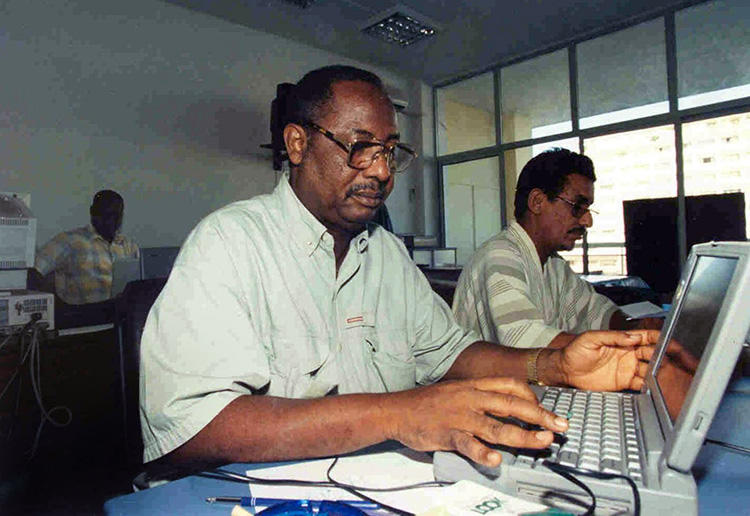
Ever since Edmund Bruke coined the term “Watchdog” in 1787 the media the world over acclaimed this role as its birthright in the dispensation of its duties. Bruke was of the view that the three arms of government, namely the executive, the legislature and the judiciary cannot be allowed to operate freely without being monitored.
Hence the term ‘The Fourth Estate of the Realm” was given to the media in recognition of its watchdog role on the three arms of government. Since then the media has evolved to be one of the greatest pillars of democracy and a great force in enhancing the rule of law and the guarantee of human rights to the citizenry; and one of the greatest arsenals in the battle against corruption in Africa as it advocates for accountability and transparency.
As we celebrate World Press Freedom day, this year’s theme “Journalism without Fear or Favour” gives us the opportunity as journalists and media workers to reflect on how well we have been serving the public.
Noting that the information that we disseminate is based on the public interest and the public’s right to know, we are duty bound to evaluate ourselves in regards to our objectiveness, accuracy, fairness and our respect and adherence to ethical norms most especially in the collection, production and dissemination of information.
Do journalists really experience fear in the dispensation of their noble duties? Yes. Unlike ever before the majority of journalists working in the continent are greeted daily with harassment and intimidation, verbal and physical attacks, arbitrary arrest and detention and at worst murder with impunity.
Almost 80% of journalists working in the continent suffer from self-censorship because they are afraid of reprisals from governments most especially dictatorship and autocratic regimes and their cronies and cabals as well as the numerous outlawed militias that operate in almost every part of the continent.
On the other hand, quite a few number of journalists and media houses have decided to play it “safe” by only engaging themselves in the broadcasting or publishing of “soft news” thus shying away from exposing corruption and gross human rights abuses. But who has created this fear amongst the watchdogs?
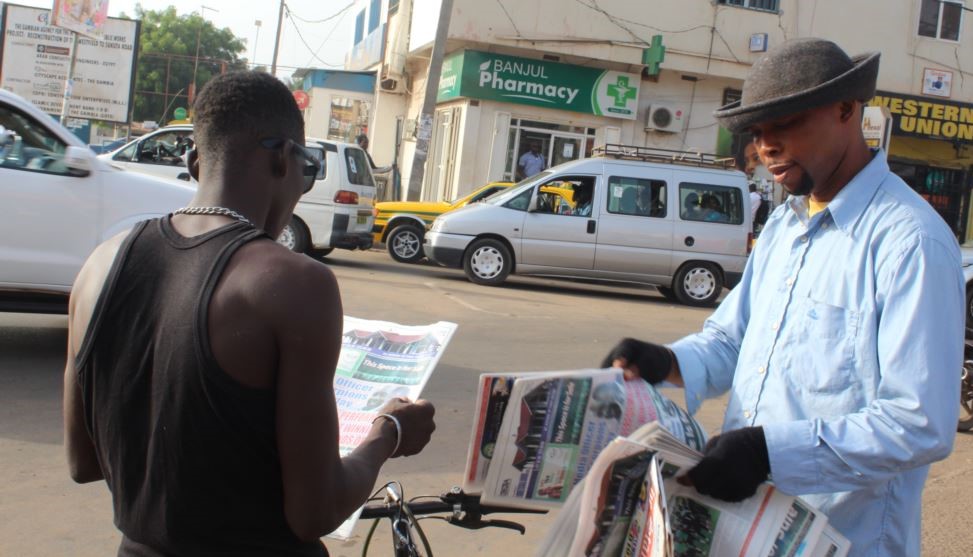
African Governments with tons of
skeletons in their cupboards continue to muzzle the press by employing every form of strategy under the sun, some of them so sophisticated that they appear to be invincible and unnoticed, yet still efficient enough to repress the press into submission.
Arbitrary arrest and incommunicado detention of journalists, forced disappearances, exile and self- imposed exile, arson attacks on media houses and homes of journalists, kidnapping, deportation of foreign journalists, threats of rape on female journalists, exposition of private pictures online of female investigative journalists, cyber bullying and trolling, hacking of journalists email accounts, torture, death threats through emails or text messages, murder with impunity, increase in taxes and taxes on media related materials, lack of incentives or support to media houses or their unions, willful cut off of advertising revenue to independent media houses, massive increment in payment of license fees for the broadcast and print media, licensing of journalists, useless and biased selective procedure of accreditation of journalists to cover national events and the consistent bogus and frivolous charges against media houses and journalists in an attempt to make them bankrupt through the payment of fines imposed by the courts.
If we take a cursory glance at our newspapers today or listen to radio and television programmes, one quickly notices that investigative journalism is slowly losing its grit and grip on the African media as investigative journalists who report on corruption and gross human rights abuses are specifically targeted for murder.
Statistics had revealed that the majority of journalists killed in Africa in the last decade are mostly muckrakers who were “working on an investigative story aimed at exposing corruption or gross human rights abuses”.
In fact it had already been said that that the most effective way of silencing a journalist is “murder with impunity”. What a shame and a deliberate disregard to the right to life.
Since the brutal murder of the Newswatch Editor, Dele Giwa, by the Babangida regime on 19th October 1986, African governments had virtually taken it in turns to murder their most effective investigative journalists. Like Dele Giwa, many of his Comrades also succumbed to the barrel of the gun under mysterious circumstances without anyone being charged or taken to court for their murder.
As Giwa, so also was Deyda Hydara of The Point Newspaper in the Gambia and Omar Barrow, both of whom were specifically targeted for murder by the callous Jammeh regime.
In the case of Deyda Hydara who was murdered on 16th December 2004, now that it had been made clear at the Truth, Reconciliation and Reparations Commission (TRRC) who the murderers are, as Gambians we must stand in unison and demand that Deyda’s murderers are brought to justice.
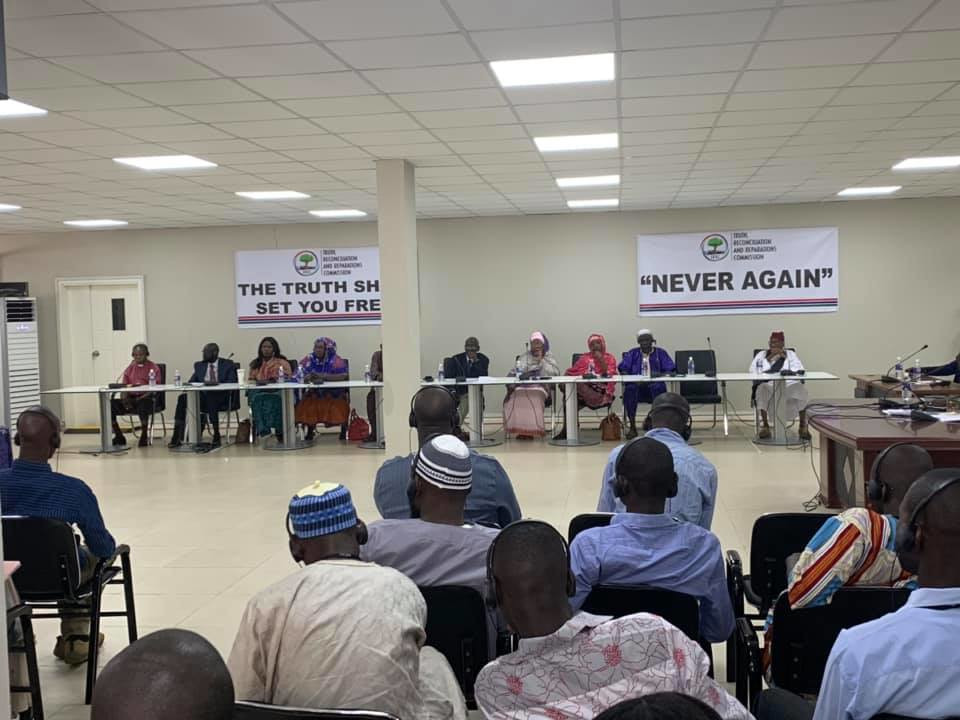
Burkina Faso’s outstanding journalist, Nobert Zongo, was also murdered in the most brutal fashion by the Compaore regime. So also was Carlos Cardoso of Mozambique, Mohad Ahmed Elmi and Ahmed Hassan of Somalia, Franck Kangundu of the Democratic Republic of Congo, who was killed together with his wife, Helene Mpoka, Mohammed Taha in Sudan and most recently Humphery Nkonde in Zambia, Precious Owolabi in Nigeria and Ahmed Hussien Suale of Ghana.
The common denominator behind all these heinous crimes is that the perpetrators are still roaming the streets of our capital cities and major towns perhaps with the exception of the “murderers” of Carlos Cardoso, a trial that was clouded in mystery as most people believed that the real culprits were not those who appeared in court.
The litany of deaths is long and shocking, unacceptable and frightening with almost every country affected. It is these senseless and brutal killing of journalists that have sent chilling waves to the spine of every journalist in the continent. This is where the fear lies.
As journalists we must quickly reorganize and refuse to be used and dumped by governments and their cronies as well as politicians and business moguls who run the scenes behind the governments. We must be bold enough to say to governments and politicians that we are not mercenaries neither are we guns for heir.
We must demonstrate that we are professionals who defend the public interest without “fear or favour” and irrespective of whose ox is gored. We must take our stands as independent journalists and refuse the manipulation and dictates of politicians and business moguls in the editorial content.
Editors must stand their ground and be bold enough to tell politicians that they have no business in the newsrooms. The newsroom is for editors and journalists. We cannot allow mainstream media to be compromised as this spells doom to both the media and the citizenry.
It is evident that journalists and media workers in most countries are divided on partisan political lines during election periods in Africa. There is ample evidence that in Nigeria quite a number of journalists were on the payrolls of powerful political bigwigs to castigate, defame and caricature political opponents on behalf of their “masters”, thus shamefully engaging themselves in massive disinformation campaigns and the publication of falsehood.
This is also true of Senegal, where former President Abdoulaye Wade had been allegedly accused of creating specific newspapers during the run up to the elections to castigate political opponents and to support his course for a controversial third term.
In Ivory Coast the situation was even worse as journalists and media houses divided themselves into “Orange” and “Green” during the Gbago, Ouattara tussle.
As media professionals we must also accept that our noble battle lines have been invaded and infiltrated by quacks and tugs that have no business whatsoever to do with journalism.
Today social media is completely whitewashed with tons of garbage in the name of “citizen journalism”; disinformation has become the order of the day.
Almost anybody with a smartphone or a camera today has become a journalist on social media and with no gatekeeping role on social media we have been consistently bombarded with lies and half truth in the name of journalism. This poses a serious threat to the future of journalism.
Strangely enough, a good number of our governments are heavily involved in the dissemination of disinformation. Press officers and public relations officers at the presidency or elsewhere within the government institutions are consistently involved in the “lying game” in the name of propaganda and deliberately feeding the populace with a diet of lies.
In this era of internet and fact checking “spinning” manipulation and deceit have long been relegated to the dustbins of history. Tell us the truth and leave us to ponder on our own judgments in relations to your acts. “Magna est veritas et praevalebit”.
One of the greatest setbacks in the fight against COVID 19 so far is the hoarding of information by some governments and the sugar coating of what the public should know.
But let us quickly remind governments that it is only a responsible press that captivates the ears of the populace because they “tell it as it is”. Truth telling therefore should be cultivated and not coerced.
The African media must take a resolute stand against the publication and pronouncement of falsehood coming from the corridors of power. Such falsehood if left unchallenged today will put on the toga of truth and actuality tomorrow.
As the Late Dr. Nnamdi Azikiwe had said “Let us bind the nation’s wounds and let us heal the breaches of the past, so that in forging our nation there shall emerge on this continent a hate free, fear free and greed free people who shall be in the vanguard of a world task force whose assignment is not only to revive the stature of man in Africa, but to restore the dignity of man in the world”.
Aluta Continua! In Solidarity with journalists and the media workers of the world.
Pa Louis Thomasi








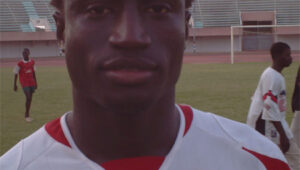
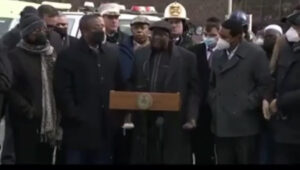
Recent Comments